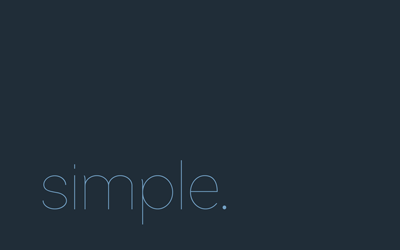Human beings are naturally complicated creatures. We live complex lives and we interact daily with incredibly complex systems: office politics, personal relationships, government bureaucracy… we are surrounded by complexity. The reality is, though, that much of this complexity need not exist at all.
When humans look at problems, we have a tendency to look for the most complex solution to that problem. I think complex solutions to problems arise when:
- We do not actually understand the core problem we are trying to solve.
- We are trying to solve too many problems at once.
- We design separate solutions to related problems that are not compatible with each other.
- Often, the complex solution is easier to design than the simple one.
- We are humans… we feel a natural sense of achievement when we create something complex.
(A more pessimistic or controversial reason might be that we sometimes develop complex solutions to problems, either consciously or subconsciously, as a defense mechanism: that is, we think that if we can show that our job is complex, we can become indispensable… in other words, we use it to justify our job/responsibility/existence.)
The problem with complexity is that it’s expensive:
- it’s expensive to build
- it’s expensive to maintain
- it’s hard to learn – for users and for developers
As product creators we need to find the simple in the complex. Simplicity is so much easier: less code, fewer mistakes and a lighter learning curve.
Your value as a creator of meaningful things is in how simple you can make it; not how complex.

